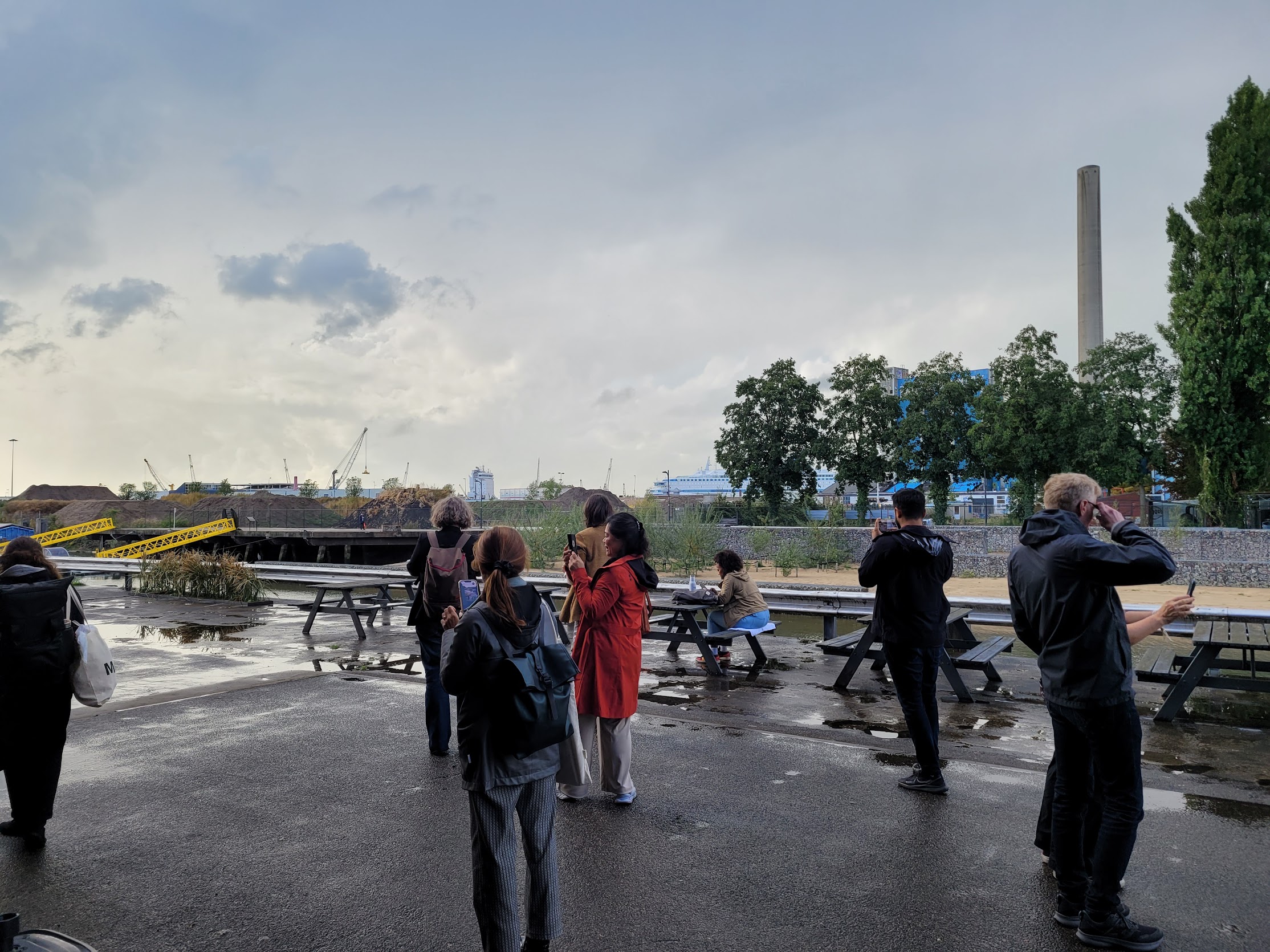2024 has been a monumental year for Metvibee: our augmented reality (AR) technology participatory urban planning and design app has gotten a huge boost in development! Thanks to a project grant by Driving Urban Transitions, co-funded by the European Union and administered in Sweden by Vinnova, we’re able to summon the energy and resources we need to bring the app to fruition.
In tandem with our tech development, we’ve been going around Europe to demonstrate how AR tech solutions like Metvibee could simplify participatory processes in planning and design, and make these processes more inclusive through augmented reality. Here are some highlights of the year:

April: Festival of the New European Bauhaus
The Festival of the New European Bauhaus is a biennial festival of European arts and culture, industry, and tech, in Brussels, Belgium.
We’re glad to be chosen for the second edition of the Festival of the New European Bauhaus, where we held a booth and workshop. Playfulness, co-creation, and innovation permeates the festival, with many exhibitors coming not only from architecture or urban planning, but also food, material science and more. Where better to host a co-creation workshop on participatory urban design?
The workshop was challenged by a lack of fast internet access inside the venue, as well as a technical error in the app, but nevertheless we’re able to explore issues of user experience, functions, challenges, and ethics on using AR for participatory urban planning and design with the participants.

June: Almedalsveckan
If you’ve gone through planning school, one of the things they teach you would probably be “urban planning is always political”. Where there are people, there is politics. Participatory planning and design is extra important in this regard, in that we can democratize how cities are planned, designed, and built.
That’s the spirit we brought to Almedalsveckan, the annual political festival of Sweden held in the medieval town of Visby, on the sunny island of Gotland. Although the festival started as a forum for political party leaders to give speeches and interact with citizens, the festival has expanded to include a wide variety of social issues, with active participation by many companies and organizations from all over Sweden.
We organized a booth and invited people to express how they wanted the city to look like. The summer heat that week was demanding for us and for the visitors, but we’ve learned a lot through this process and also through participating in activities hosted by other organizers.

September: Placemaking Week Europe
Placemaking Week Europe, the largest European event dedicated to placemaking was held in Rotterdam, the Netherlands this year. Last year we shared a session with UrbanistAI on participatory planning and design, when we only had a web app prototype; this year we have a native mobile app for both Android and iOS. We also got our own session this year, which is a great boost for us and a sign of how far we’ve come.
We held our workshop at the Katoenhuis, a former warehouse at Keilenpand and now a center for immersive arts and culture. With 10 people participating, we had fun on the patio facing the river Maas, making all kinds of “mischief” to the space—and had a discussion afterward on Metvibee’s potential for participatory urban planning and design.

October: Urbanism Next
The Driving Urban Transitions project that we’ve got funding for, is a European-wide project titled “Car-GoNE-City”, and explores how we can encourage adoption of cargo bikes through pilot projects in infrastructure. Our role in the project is to develop a tool for participatory design for planning cargo bike infrastructure.
The project partners include Chalmers University of Technology, several municipalities and universities across Europe, and other public and private sector partners. Together we decided to submit a proposal for a workshop at Urbanism Next, a conference hosted by the University of Oregon and TU Delft.
Working on our presentation was challenging but fun, and it was an excellent research exercise on making the link between sustainability and cargo bikes with participatory planning and design. We tackled the subject from a user experience angle and found out how current cycling infrastructure overlooks the needs of cargo bike users.
Outlook on 2025 and beyond
Participatory urban planning and design is getting traction, with new tech tools being developed to enable participation at a larger scale. Metvibee is nearing launch and we’re continuously looking for partners to deliver more value together to architects, urban planners, property developers, and citizens—reach out to Raphaela to learn more.
Follow Metvibee on LinkedIn and Instagram so you’ll be the first to know when and where our launch party is going to be (with lots of co-creation of course).
We’re also sneakily starting our pre-sales signup 🙂 Sign up now if you’re craving for Metvibee!


You must be logged in to post a comment.